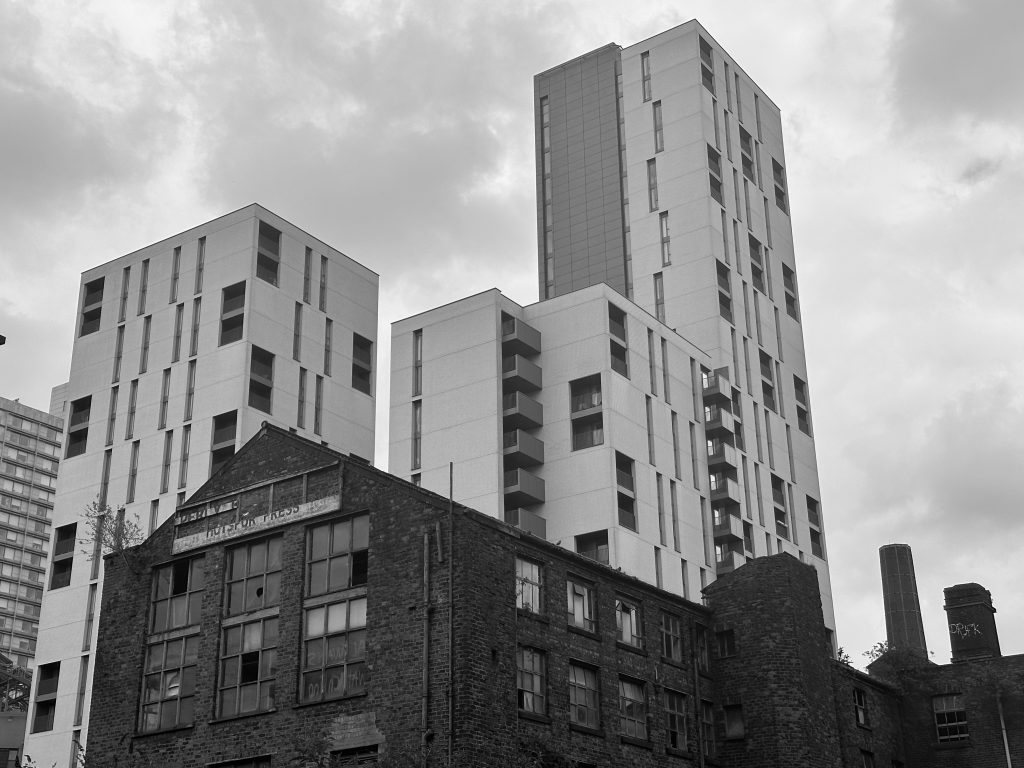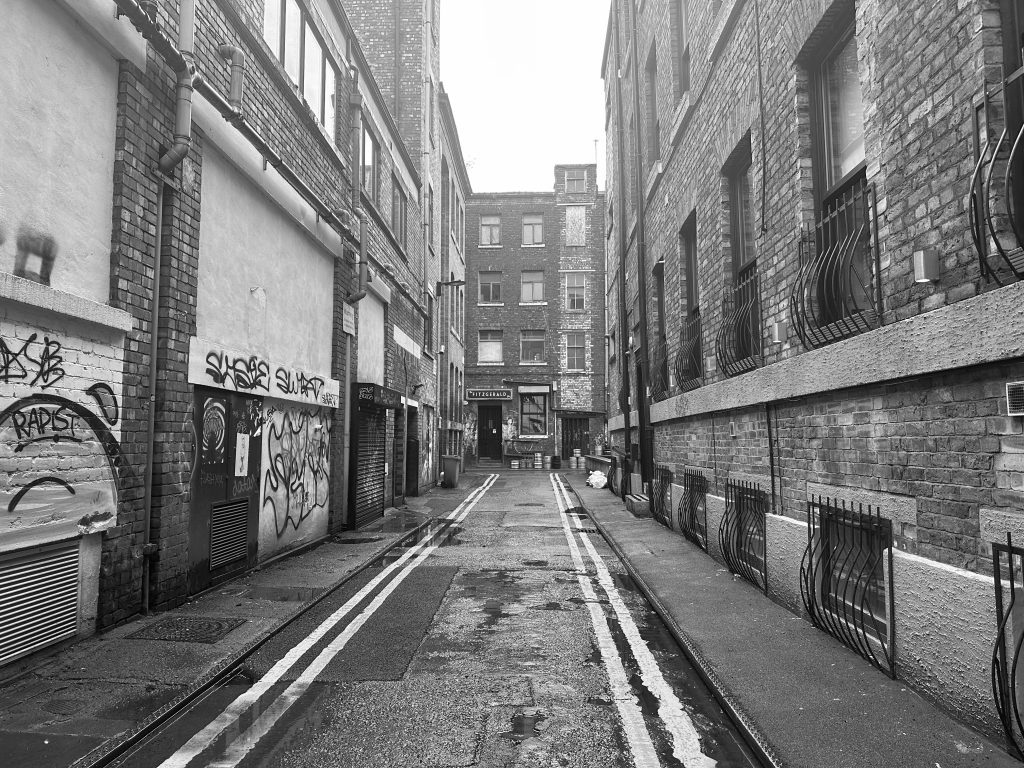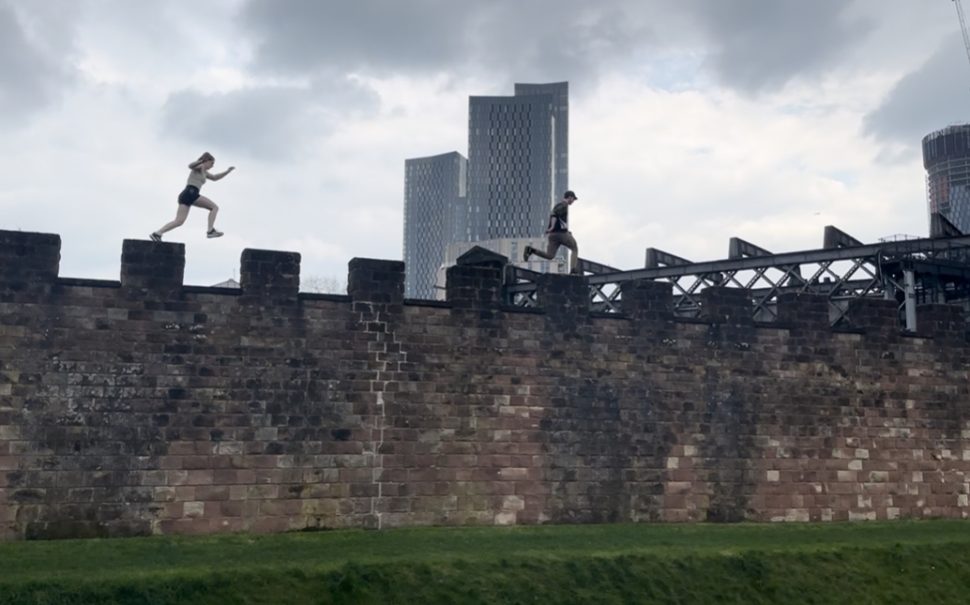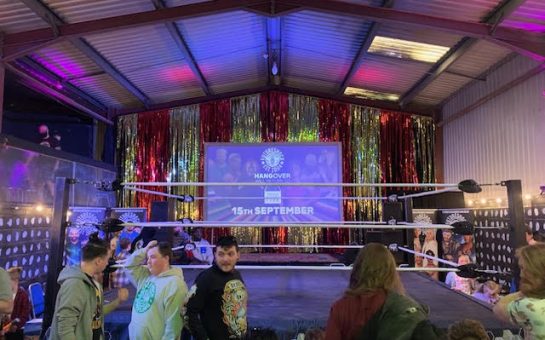The rise of TikTok has led to an explosion in the popularity of parkour – running, jumping and climbing through typically urban environments – thanks to the fast-paced nature of the sport. Abi Curran meets coaches and practitioners who believe Manchester’s urban playground city is a landscape of unearthed potential…




Tom Redfern remembers exactly where he was when he fell in love with parkour.
At 14-years-old, he created a tower of four matresses next to his garden wall.
The scene resembled something from a Princess and the Pea picture book, but the setting was rather less picturesque – a back garden in Bury.
The inspiration? A video he watched with his brother of a trained athlete landing perfectly from a backflip.
The young acrobats fancied themselves to do the same.
These were Redfern’s earliest iterations of parkour.
“I thought, ‘That doesn’t look too hard,’” he said. “You just run up and put your foot on the wall and lean back essentially.
“It turns out you can still feel concrete through four mattresses, so we moved onto our trampoline, and I got close to doing it.
“Then we started trying it on the grass. I managed it well but tried it again three weeks later and sprained my ankle. I think I was traumatised from that.”
Little did Redfern know then that this new-found hobby would become his career.
He now runs Project Z, a qualified Manchester-based coaching group he set up in 2015. The company trains and mentors over 400 budding free-runners in the discipline from ages four to mid-40s.
The North West parkour community has tasked itself with growing its practice and have already had success, hosting functional core skills training for young children and competitions for more advanced athletes.
According to figures from a survey conducted by Sport England, 81,500 of the UK population took part in parkour from November 2021 to November 2022 – more than volleyball, taekwondo and even rugby league.
But despite these figures, official numbers on participation are difficult to track.
Callun Lavington, a coach and digital content creator from Parkour UK, said: “Finding an accurate number of participants is close to impossible.
“As an organisation, we are trying to work it out, but much like skateboarding and other lifestyle sports, it’s started loosely.
“It’s the people who practice out of their own free will without visiting clubs that make this a very hard figure to track.”
And before the sport becomes fully formed in this coming-of-age narrative, misconceptions surrounding parkour must be stamped out.
After the explosion of social media and short-form content, free running is more viral than ever.
One scroll, the touch of a button or a single notification is a gateway for a whole new audience to experience daredevil stunts through their screens.
Lavington said: “Social media makes people more aware of it now but the views of the sport are, ‘They’re adrenaline junkies who don’t think about what they’re doing.’
“That’s the stigma that we’re trying to change. What you’re seeing is the final result – it’s a long mission.
“It’s important to get rid of this glorification of the extreme.”
Redfern, too, is conflicted by social media.
He finds himself between the much-needed exposure that viral content provides yet increasingly disillusioned with how it flattens the skill of parkour.
“I don’t enjoy the fast-food content that is created,” he said. “Back when I was learning you’d pile up your footage over the space of a couple of months and then dump it all in one long video.
“It inspires me but I feel like for some people it can be very off-putting, only seeing these unbelievable achievements knowing that you’re still at a beginner level.”
Manchester Takeover
Last month, Project Z hosted their first Manchester Takeover. Top athletes from across the country travelled to the city to take part in various free running challenges.
Exchange Square, Castlefield Bowl and Ancoats were just some of the iconic locations for the challenges, known for going viral on social media.
Manchester Takeover was an innovation for the city with positive feedback from practitioners and the event’s organisers.
Yet despite its success just four women competed in the female category.
Lynn Jung, a professional female parkour athlete, said the lack of women taking up space in parkour gyms and communities alike needs to be addressed.
“It’s almost like you have your safe space in the gym but then you travel to big events and you’re not in your safe bubble,” she said.
“A lot of women wouldn’t be interested in parkour because it comes with all the connotations that it’s quite masculine.
“The courage, strength and prowess of being outside and getting scratches, it just comes with a lot of those negative stereotypes.”
And Manchester is also innovating in this area.
Amy Harcourt, winner of Manchester Takeover’s female category, is bringing a women’s and non-binary event to the city for the second year running.
Once again, the sport is thinking outside of its own realms to try to attract new practitioners from a range of backgrounds.
Progress is slower than many practitioners would like it to be.
But it’s progress.
And with the foundations this Manchester community has built, this coming-of-age narrative is destined to reach maturity.
Looking to the future, Redfern still has exactly the same determination he did at 14.
Mattresses stacked. Trampoline assembled.
“Five years down the line I would love to have a venue that draws people in,” he said. “I would love the people that come to that venue to use Manchester’s parkour spots to train and actually show the world that we are here and Manchester’s worth coming to.”




